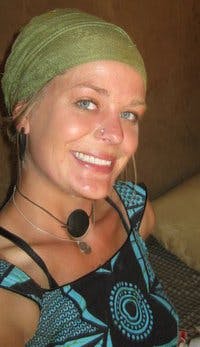Deconstructing Oppression and Inspiring Empowerment Through Community
Jan 21, 2015
Story
The African continent knows a protracted history of colonization, intervention and oppression, and as such many people here are understandably skeptical of outside influence and intentions. As a white woman from the US living in West Africa, one of my biggest personal barriers to creating change in my community is resolving my identity as part of a group that is characterized as dominating and oppressive. I am here to work synergistically with Malian people towards their empowerment and liberation by means of development. As such it is an important challenge for me to consciously embody a role that is culturally, politically and morally appropriate.
In Paolo Freire’s candid book Pedagogy of the Oppressed, the empowerment and ‘humanization’ of oppressed peoples worldwide is advocated as a revolution that must originate from and be driven by the oppressed themselves, rather than by development agents or outsiders. This is a conviction I strongly share and as such, I feel it is inappropriate for me to play a dominating role here. Freire cautions that even well-intentioned actors working towards liberation and independence of oppressed peoples are often unknowingly influenced by the very structure of oppression they attempt to deconstruct, and I must be sure to not succumb to this.
This structure of oppression also creates barriers to change in my community in the form of a residual sense of fatalism and self-deprecation on behalf of Malian villagers, learned from centuries of being forced into the role of The Dependent, or The “Ignorant Peasant”. Most rural Malians have never been encouraged to be confident agents of positive change; they defer to the supposed expertise of others and don’t believe to have autodidactic faculties, much less the ability to teach or liberate/empower their communities. As such, many are resigned to dependency on outside help and funding, and impassive about working towards change themselves. Beyond this, there are cultural and religious barriers to overcome: gender norms here are influenced by historical tradition and Islam, which make it difficult to work with women, especially in contentious areas like family planning.
Faced with these obstacles, I believe resolutely that the solution to empowering people to create change must begin with mutual trust and honest dialogue. To take on an appropriate role within a community means to become an integrated part of it, to disassemble the structure of oppression that has nurtured disempowerment. The self-deprecation and dependency that pollutes identity must be deconstructed and remade through affirmation and trust, through demonstrating that everyone has the capacity to learn and create change. Similarly, the challenge of limiting gender roles can be surmounted by networking with other inspiring female leaders who have overcome these barriers.
PulseWire and other online communities can help overcome these challenges by creating a universal, positive forum in which honest dialogue and collaboration is possible. Not only can people become inspired to self-empowerment by connecting with others who share their struggle, but they can make their voices heard, resources can be exchanged, ideas shared, and solutions discovered.




